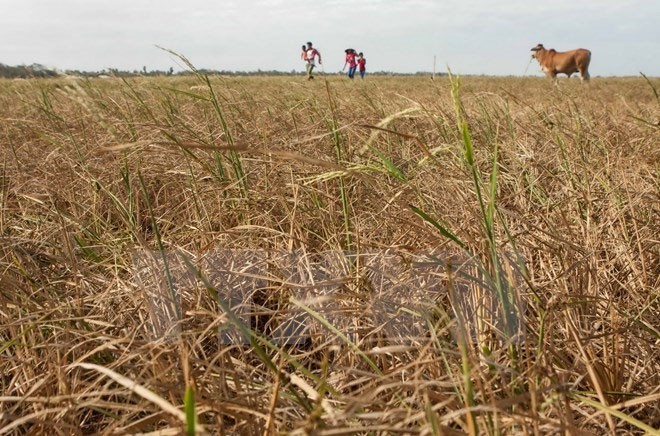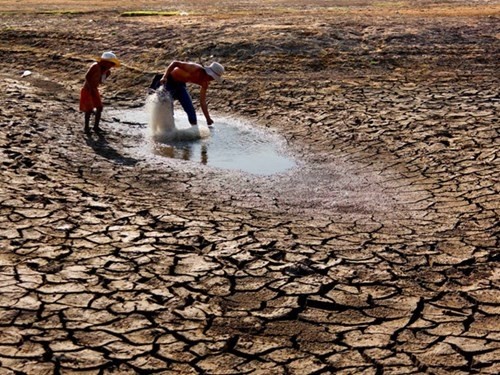(VOVworld) – From the beginning of the 2016 spring crop, Mekong delta provinces have shifted from rice cultivation to drought-tolerant plants to adapt to the prolonged water shortage. This method has helped to save water for irrigation.
 |
| A rice field in Lich Hoi Thuong commune of Soc Trang province dies of saltwater intrusion. (Photo: vietnamnet.vn) |
For this year’s summer-autumn crop, Le Tang of Binh Phu commune in Dong Thap province has switched to growing peanuts instead of rice, because is suitable to the local sandy soil.
Tang said peanuts are easier to grow and consumer less water, adding “we didn’t have enough water for irrigation during the months after Tet so we had to change to planting other crops immediately. Growing peanuts helps us reduce costs and water.”
Farmers in Ca Mau and Hau Giang province have chosen green peas and pineapples to replace rice and will expand the cultivation area of these crops in the future.
Associate Professor Chau Minh Khoi from Can Tho University’s Department of Agriculture and Applied Biology said in terms of the ongoing drought and saline intrusion it’s possible to choose waterwise plants. But for areas whose soil is suitable for only rice cultivation the alternate wetting and drying (AWD) technology is likely a good choice. When using the techniques, fields are managed as irrigated lowland rice while the top soil layer is allowed to dry slightly before irrigation is applied again. The method has been successfully applied in a number of areas in An Giang and Bac Lieu province and helped to save up to 20% of water used in agriculture.
Khoi said “depending on each type of soil we can apply alternate methods of irrigation. It means water will fully soak the fields, then be drained off and vaporized naturally but without the need to continuously pump into the fields. For instance, with clay which has a high ability to retain water, we can wait until the water has sunk 10cm below the ground, when the irrigation can be applied again. In this condition, rice remains safe.”
 |
| Field is exhausted in southern Ninh Thuận Province. (Photo: dantri.com.vn) |
Le Anh Tuan, Deputy Director of the Research Institute for Climate Change, Can Tho University, said water-saving in agriculture will contribute to using water resources efficiently.
He said the watering of crops and rice fields should be in the right time when plants really need water for growing as this will reduce water losses and maintain the fertility of the farm land.
“We’ve conducted a lot of studies on water-saving such as spraying and soaking various crop farming areas, especially on sandy land. The current watering method causes water to absorb into the ground and vaporize too much. Scientific irrigation can save up to 40% of necessary water while irrigation efficiency will increase 90%, depending on the method of irrigation system.”
In response to current climate change, Mekong Delta provinces have improved their dyke systems and built sewers to prevent salt water intrusion along the river and in fruit tree growing areas.